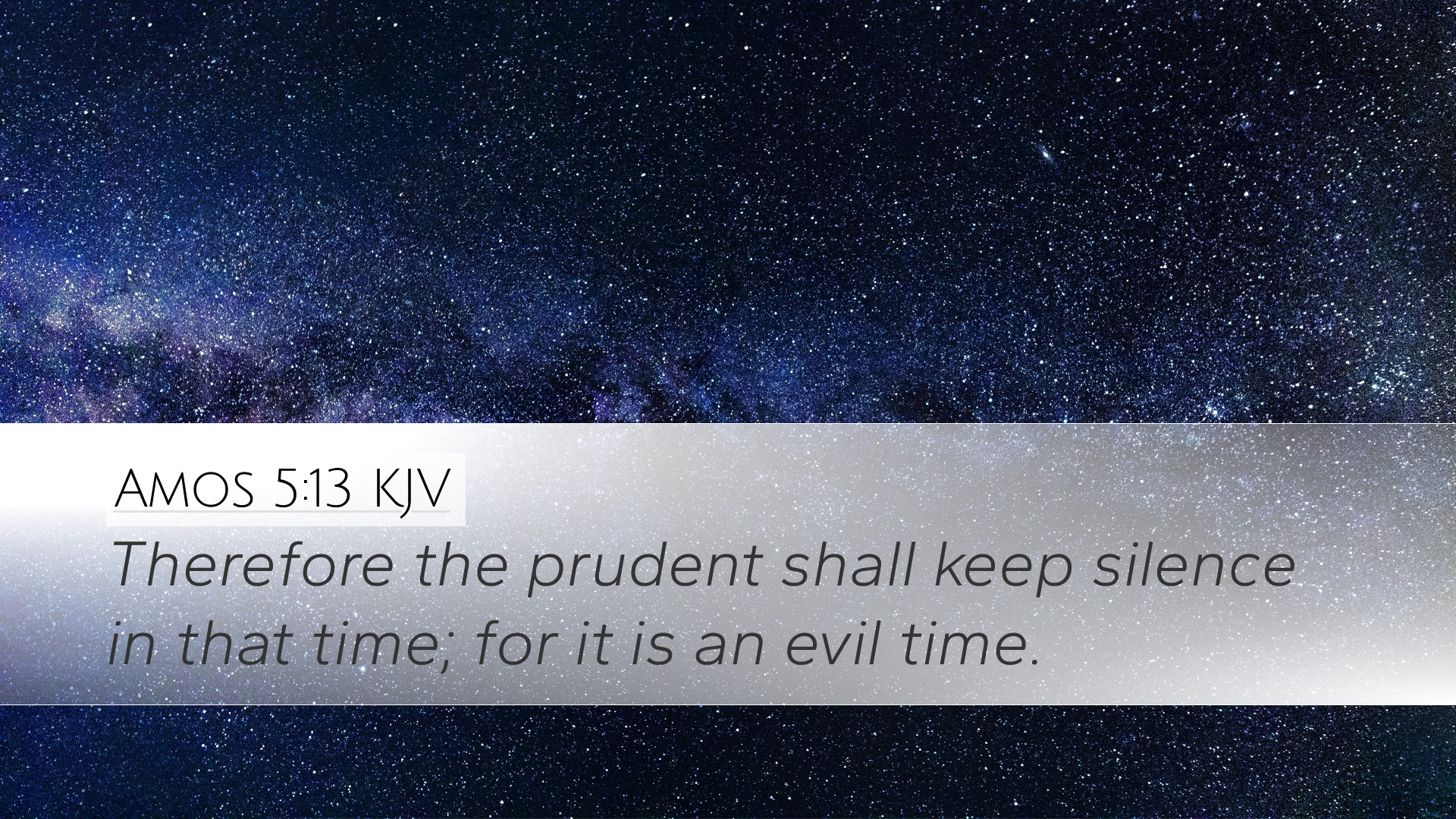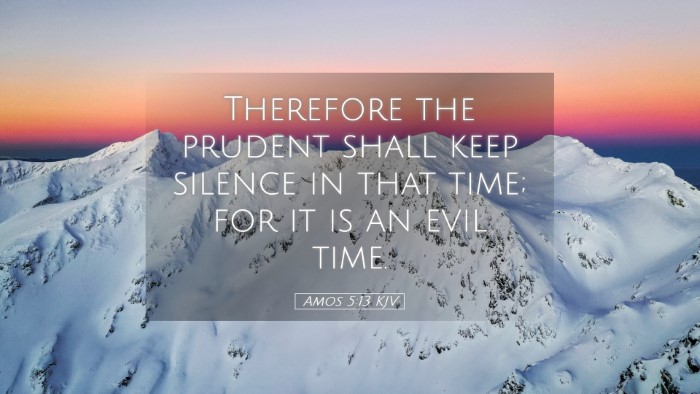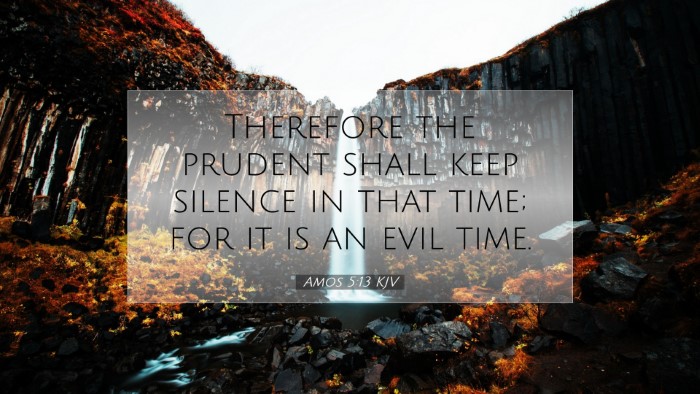Old Testament
Genesis Exodus Leviticus Numbers Deuteronomy Joshua Judges Ruth 1 Samuel 2 Samuel 1 Kings 2 Kings 1 Chronicles 2 Chronicles Ezra Nehemiah Esther Job Psalms Proverbs Ecclesiastes Song of Solomon Isaiah Jeremiah Lamentations Ezekiel Daniel Hosea Joel Amos Obadiah Jonah Micah Nahum Habakkuk Zephaniah Haggai Zechariah MalachiAmos 5:13
Amos 5:13 KJV
Therefore the prudent shall keep silence in that time; for it is an evil time.
Amos 5:13 Bible Commentary
Commentary on Amos 5:13
Verse Context
Amos 5:13 states: "Therefore the prudent shall keep silent in that time; for it is an evil time." This verse falls into a passage where Amos, the prophet from Tekoa, delivers a message of judgment against Israel. It reflects the grave state of the society of Israel and its moral decline, urging a sober response to impending judgment.
Insights from Public Domain Commentaries
Matthew Henry's Commentary
Henry points out that the prudent are those who possess wisdom and discernment. They recognize the futility of voicing their opinions or protesting in times when the hearts of the people are hardened against the truth. Henry emphasizes that silence in this context is a mark of wisdom, indicating an awareness of the seriousness of the times. The 'evil time' can be understood as a period marked by sin, corruption, and impending catastrophe where even the wise see no profit in speaking out.
He elaborates that this silence is intentional; the prudent understand that sometimes speaking can provoke a stronger adverse reaction or even further suffering. This acknowledgment that some words are better left unsaid underlines a mature approach to the prophetic ministry and its inherent challenges.
Albert Barnes' Commentary
Barnes interprets the verse by reminding readers that 'the prudent' here refers to those who are wise enough to gauge the danger surrounding them. He notes that the 'evil time' in this context refers to significant social and spiritual decay within Israel. The prudent are advised to remain silent as their words would be wasted on people who are unresponsive to God's warnings.
Barnes emphasizes the deeper implication of silence— it signals a time of mourning and introspection rather than a time of celebration and expression. The implied message is that the ongoing mode of communication during times of severe judgment should lean more towards prayer and personal reflection as opposed to public debate or discourse.
Adam Clarke's Commentary
Clarke provides a theological perspective on the phrase 'prudent shall keep silent.' According to him, this reflects a profound understanding of human nature and the conditions of one's environment. The wickedness prevalent in the society justifies the prudent's silence, signaling that their message would not be received in a receptive spirit. They see a necessity in their silence to display respect for the gravity of the consequences that are about to unfold.
Furthermore, Clarke notes that this silence serves as a form of protest against the prevailing iniquity. The believers, aware of their surroundings, choose not to contribute further to the noise of a wicked society. They instead focus on being intercessors for their people, as silence during such times does not denote inactivity but rather a different form of ministry— petitioning God for mercy while recognizing His justice.
Theological Implications
This verse, therefore, not only emphasizes the significance of discernment in communication during tumultuous times but also informs the faithful of the types of responses that may be appropriate in the face of pervasive evil. Silence can be a profound form of advocacy, especially in an environment where speaking may only serve to agitate or provoke.
- Discernment in Speech: Understanding when to speak and when to be silent is a critical life skill for believers.
- Sensitivity to Context: The prevalence of evil calls for a response that is reflective rather than reactionary.
- Active Prayer Life: During evil times, God's people are urged to engage more vigorously in prayer than in public outcry.
Conclusion
Amos 5:13 captures a provocative moment for reflection among leaders, congregations, and individuals. It asks us to evaluate our response to moral decay, encouraging a thoughtful approach to communication amidst trials. The insights from these commentators remind pastors, theology students, and scholars of the profound nature of prophetic silence and the wise choice to engage—in ways that align with spiritual maturity and the pursuit of divine justice.


